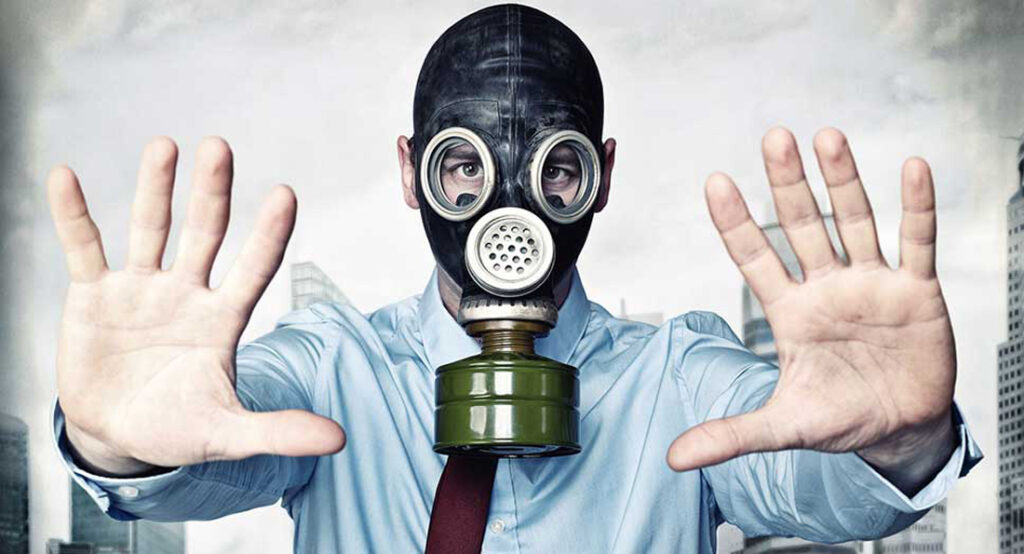Toxic relationships don’t only involve couples. It can happen in any type of relationship, be it friendship, family, or work, is susceptible to poisoning and becoming toxic. But have you ever wondered if you were the toxic one? What if you’re the one hurting the people around you? Don’t be surprised to find out the answer because we’ve all been toxic with someone at some point in life. The important thing is to realize it… Don’t know how to act or behave so as not to hurt others? If you think that you are not behaving empathically and are worried about being a toxic person, in this article, we explain how to stop being one! We’ll help you detect negative behaviors towards others and yourself to improve your personal relationships.
How to Know If I am a Toxic Person?

You don’t need to define yourself as a toxic person, but you need to do a bit of self-criticism or an exercise in introspection to find out if you are behaving in a toxic way. We insist that we are not just talking about a couple. Watch out for signs of toxic behavior.
- If you do not like yourself: If you have many internal conflicts, if your vital contradictions are the norm, if you do not value yourself, do not appreciate yourself, or even have low self-esteem, you may have a certain tendency to toxicity.
- If you don’t like your life: If you feel cheated, if you don’t find meaning in life, if the frustration is constant, you are very close to toxic behavior.
- If you are never to blame: If others are always responsible, if life is against you, or if you think you were born with bad luck, Be careful! Because maybe you are the toxic one here.
- If you have a low tolerance for frustration: If you get angry when things don’t go well for you or argue with close people when they don’t react as you expected, this is the time to develop your emotional intelligence.
- If you are envious of others: If you think that others have more opportunities than you, if life always smiles on another and causes you discomfort and irritation, you may be a bit toxic.
- If you manipulate: If you blackmail if you want others to dance to what you play, if you need to be the center of attention or need others’ approval, it is also a sign of toxic behavior.
Why Am I Such a Toxic Person?

If you consider yourself a toxic person, either because relatives have mentioned it or you’re always having conflicts in your relationships, it’s time to reflect on yourself. If we look anywhere for the definition of a toxic person, we find a consensual explanation similar to this: “Selfish and/or narcissistic person who affects the people around them.” If we take this as the basis of the toxic personality, there are two essential characteristics to consider: selfishness and narcissism. When we think of these two terms, it is improbable that we can recognize them. In contrast, humility is needed to identify the qualities that we consider less favorable in ourselves. Leaving this aside, I would like to continue analyzing the terms that concern us, selfishness and narcissism.
Selfishness

When we think of the term selfishness, we automatically qualify it as negative, leading to thoughts of despotic attitudes, arrogance, etc.. Still, the definition of selfishness has more dimensions than we know. There is altruistic selfishness, conscious selfishness, and selfish selfishness. These three types of egoism have the same root, the primary function of satisfying our needs, but the difference is how this need is expressed to the world.
- In altruistic egoism, it has its essence when we are not moved by the need to constantly satisfy our emotional emptiness, allowing us to enjoy the bonds with other people from love.
- Conscious egoism refers to the relationship we build ourselves from self-love and self-satisfaction of our needs because happiness is in ourselves and not in external factors, whether people or objects.
- And finally, egocentric selfishness is generated by this low connection with ourselves, the insecurity that produces fragile self-esteem and in need of constant approval by external people, social position, job positions, etc. This leads to an attitude of constant need when we bond with other people. For example, I need to be told that I look good when I dress because I cannot feel confident about my image.
Narcissism

On the other hand, we have the selfish factor; this characteristic of behavior is based on an exaggerated belief in the importance of oneself and the constant need for admiration and attention from others, focusing on the self’s opinion. This implies low empathy on the part of the person with narcissistic traits. Empathy allows us to detect other people’s emotions and create links with the people around us. This means that people with narcissistic characteristics do not usually think about the implications of their actions or how they can affect others since their level of empathy is very low or null. For example, I want to go out with my partner to eat, and I feel like eating sushi, but the other person does not like sushi, but I am indifferent, and if we are not going to eat sushi, I get angry with my partner.
Do you identify with any of these behaviors? Quiet, there is a solution. Check out the second part to find ways how you can avoid being a toxic person!



Pingback: How to Change My Toxic Behaviour? (Part 2) – Hello sites